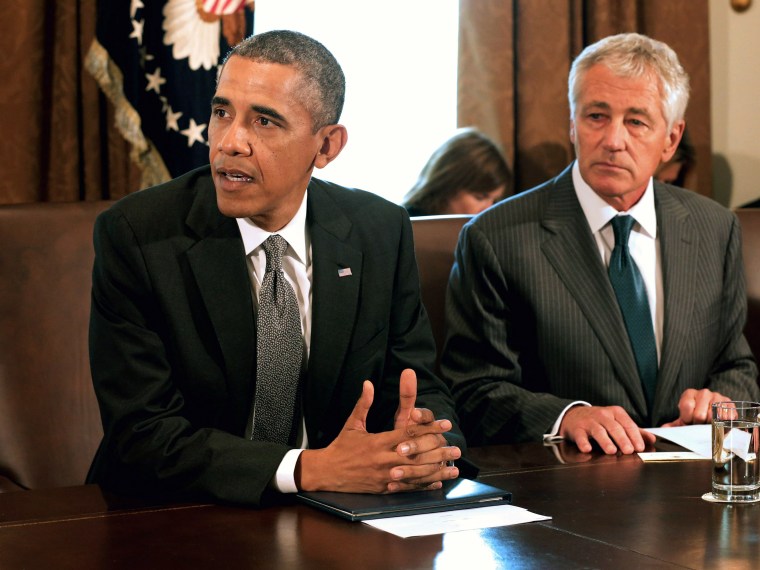The United States will continue to leave military action in Syria on the table, President Obama said, arguing that this week's turn of diplomatic options to draw down the chemical weapons arsenal of Syrian President Bashar al-Assad's regime was made possible thanks to U.S. threats of military force.
"Since this plan emerged only with a credible threat of U.S. military action, we will maintain our military posture in the region to keep the pressure on the Assad regime," Obama said in his weekly address. "And if diplomacy fails, the United States and the international community must remain prepared to act."
Secretary of State John Kerry is expected to continue talks with his Russian counterpart, Sergei Lavrov, in Geneva Saturday. For the past three days, the leaders have been plotting out the blueprints to securing Syria's stockpiles of chemical weapons into the control of the international community. Russia, long an ally to Syria during its two and a half years of civil war, seized on what appeared to be an off-the-cuff remark from Kerry earlier this week, setting into motion talks of diplomacy.
Though President Obama welcomed the diplomatic developments as a possible "breakthrough," he and administration officials have cautioned taking Russia's pledges at face value. "Russia has staked its own credibility on supporting this outcome," Obama said in his weekly address.
The Obama administration has been equally cautious in testing the Assad regime's seriousness in promises to hand over its chemical weapons stockpiles. After Assad admitted to possessing the weapons, Syrian officials made motions on Friday to sign onto the Chemical Weapons Convention. But words are not enough, Obama administration officials have said after finding Assad responsible for an Aug. 21 chemical attack against his own people.
"We're making it clear that this can't be a stalling tactic," Obama said.
Meanwhile, UN Secretary-General Ban Ki-moon was confident Friday that his agency's report will confirm that chemical weapons were in fact used in the Aug. 21 attack. Prior to the developments giving way for diplomacy, the European Union said it would await the UN's preliminary report on the attack before agreeing to take any military action against Assad. The report is expected Monday.
